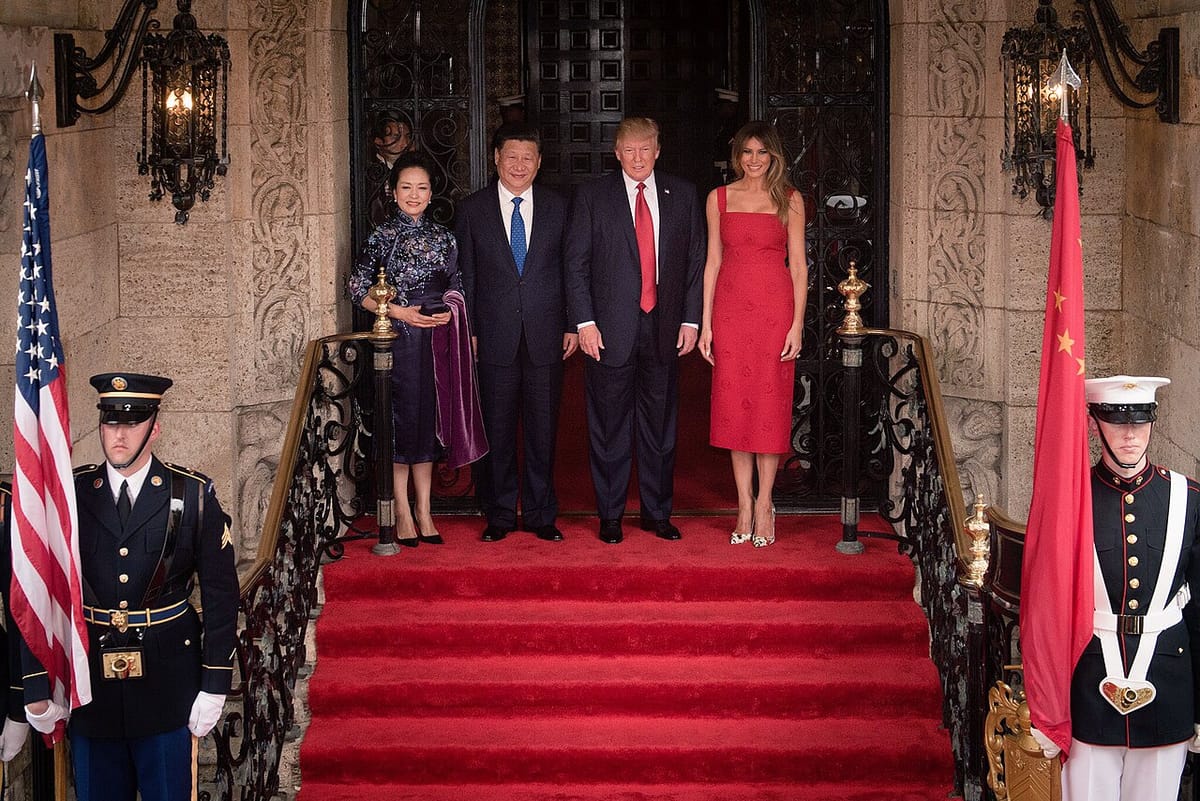China Retaliates Against Trump Tariffs with Matching Levies and Sanctions: Escalation in Trade War

On Friday, April 4, 2025, China announced a sweeping set of retaliatory measures in response to President Donald Trump’s latest tariffs on Chinese imports. Beijing’s actions include a universal 34% tariff on all U.S. goods beginning April 10, export restrictions on rare earth elements critical to high-tech industries, and sanctions targeting 11 major American companies. These moves mark a significant escalation in the ongoing trade conflict between the world’s two largest economies, with global markets reacting sharply to the heightened tensions.
China’s Retaliatory Measures
34% Tariff on All U.S. Imports
China’s Ministry of Finance announced that starting April 10, all products imported from the United States will face an additional 34% tariff. This matches the reciprocal tariff imposed by President Trump earlier this week on Chinese goods entering the U.S., which brought cumulative duties on these imports to over 54%.
The scope of China’s tariffs is unprecedented, covering approximately $500 billion worth of annual trade between the two nations. Key affected industries include:
- Agriculture: U.S. exports of soybeans, corn, wheat, and poultry will face steep price hikes in Chinese markets.
- Energy: Liquefied natural gas (LNG) and coal exports are expected to decline significantly.
- Manufacturing: Industrial goods such as machinery and vehicles will also be hit hard.
Export Controls on Rare Earth Elements
China announced restrictions on the export of seven rare earth elements to the United States, including samarium, gadolinium, and terbium. These materials are essential for producing high-tech products such as computer chips, electric vehicle batteries, MRI machines, and aerospace components.
The Ministry of Commerce justified these export controls as measures to “protect national security and interests” while fulfilling international commitments related to non-proliferation. Analysts warn that these restrictions could disrupt supply chains for U.S. technology companies and defense contractors.
Sanctions on U.S. Companies
China added 11 American firms to its “unreliable entity list,” effectively banning them from operating within its borders or accessing Chinese resources. Among the targeted companies are:
- Skydio Inc: A drone manufacturer accused of selling arms to Taiwan.
- BRINC Drones: Another drone company flagged for military sales.
Additionally, Beijing suspended chicken imports from two major U.S. suppliers—Mountaire Farms of Delaware and Coastal Processing—citing repeated violations of Chinese food safety standards.
Global Market Reaction
U.S. Markets
The announcement triggered sharp declines across major U.S. stock indices:
- Dow Jones Industrial Average: Dropped over 1,000 points (2.7%) at market open.
- S&P 500: Fell by more than 3%, marking its worst performance since March 2020.
- Nasdaq Composite: Declined by nearly 3%, officially entering bear market territory.
Technology stocks were hit hardest due to concerns about rare earth supply disruptions:
- Apple (AAPL): Down 6%.
- Nvidia (NVDA): Fell 4%.
- Tesla (TSLA): Dropped nearly 5%.
Global Markets
International markets also reacted negatively:
- Japan’s Nikkei 225 index fell by 2.8%.
- Germany’s DAX declined by 2.4%.
- Britain’s FTSE 100 shed 1.5%.
Investors flocked to safe-haven assets such as gold and government bonds amid growing uncertainty:
- Gold prices surged to $3,167 per ounce.
- The yield on the benchmark U.S. Treasury note fell to its lowest level in two years.
Trump’s Response
President Trump dismissed China’s retaliatory measures as “miscalculated” during remarks at a White House press briefing on Friday morning. He reiterated his belief that the tariffs would ultimately benefit the U.S. economy by reducing reliance on foreign goods and encouraging domestic manufacturing.
“China thinks they’re hurting us, but they’re only hurting themselves,” Trump said. “These tariffs are about putting America first.”
Trump also hinted at additional trade actions targeting other nations with significant trade surpluses with the U.S., including Canada, Mexico, and South Korea.
Economic Concerns
Impact on Consumers
Economists warn that escalating tariffs will lead to higher prices for American consumers:
- The Yale Budget Lab estimates that households could face additional costs ranging from $2,700 to $3,400 annually due to increased prices on imported goods.
- Automobiles are expected to see price hikes averaging $6,000 per vehicle.
Inflationary Pressures
The tariffs come at a time when inflation remains elevated above the Federal Reserve’s target of 2%. Federal Reserve Chair Jerome Powell issued a warning on Friday about prolonged inflation risks stemming from higher import costs.
“Elevated tariffs could complicate our dual mandate of maximizing employment while stabilizing prices,” Powell said during a press conference.
Business Uncertainty
Many U.S. companies reliant on global supply chains are reassessing their investment plans amid heightened uncertainty:
- Manufacturers may delay hiring or reduce production due to increased costs for imported materials.
- Retailers reliant on imported goods are bracing for reduced profit margins.
Geopolitical Implications
Strained Relations
China’s retaliatory measures underscore deepening tensions between Beijing and Washington:
- The State Council Tariff Commission described Trump’s actions as “unilateral coercion” that contravenes international trade regulations.
- Chinese President Xi Jinping has signaled confidence in China’s ability to withstand economic challenges posed by the trade war.
Global Trade War Risks
Other nations are closely monitoring the escalating conflict:
- European Commission President Ursula von der Leyen warned that Europe may impose countermeasures if U.S.-EU trade relations deteriorate further.
- Vietnam announced plans for high-level talks with Washington aimed at mitigating potential fallout from Trump’s tariff regime.
Expert Opinions
Trade experts view China’s response as a significant escalation in the ongoing conflict:
- Leah Fahy, an economist specializing in China at Capital Economics, noted that Beijing is now confronting U.S. actions directly rather than reacting subtly.
“This marks a strategic recalibration rather than blind retaliation,” Fahy said in a research report.
Larry Hu, chief economist for China at Macquarie Group, warned that Trump’s tariff strategy could reduce China’s economic growth by as much as 2.5 percentage points this year due to decreased demand for Chinese products and disruptions in export re-routing.
Looking Ahead
As tensions escalate between China and the United States, several key developments bear watching:
- Will other nations join China in retaliating against Trump’s tariffs?
- How will businesses adapt to higher costs and supply chain disruptions?
- Can global markets stabilize amid growing uncertainty?
Conclusion
China’s sweeping retaliatory measures against President Trump’s tariffs mark a significant escalation in the ongoing trade war between the world’s two largest economies. While both sides argue that their actions are necessary for protecting national interests, the broader implications—ranging from inflationary pressures to strained diplomatic relations—underscore the risks of prolonged conflict in an increasingly interconnected global economy.
As policymakers and businesses navigate this challenging environment, their decisions will shape not only bilateral trade relations but also broader questions about economic stability and geopolitical power dynamics in the years ahead.




